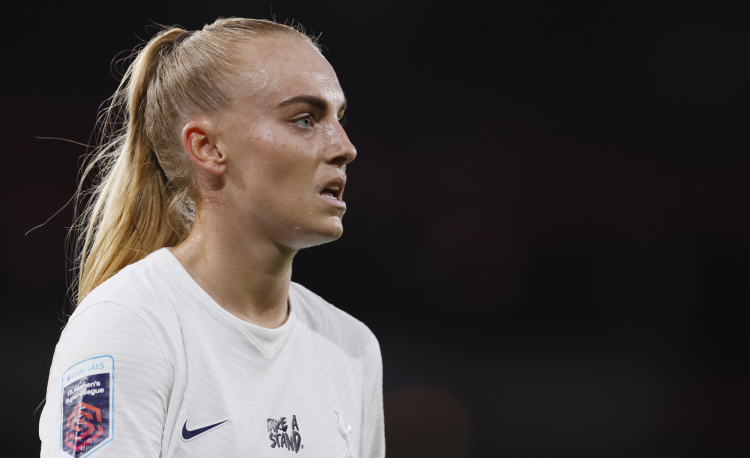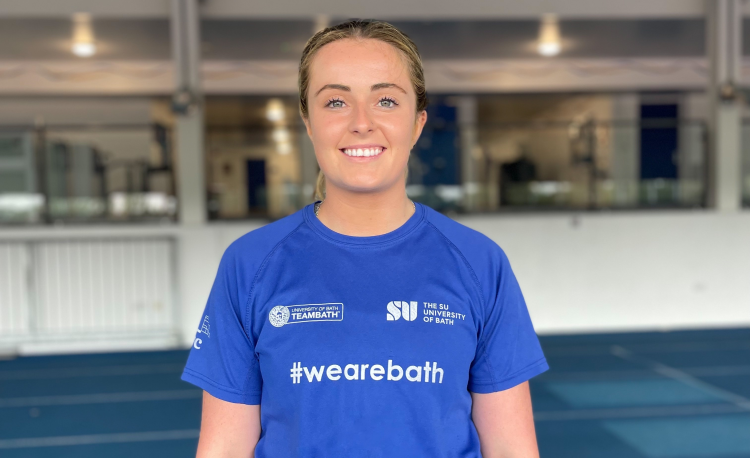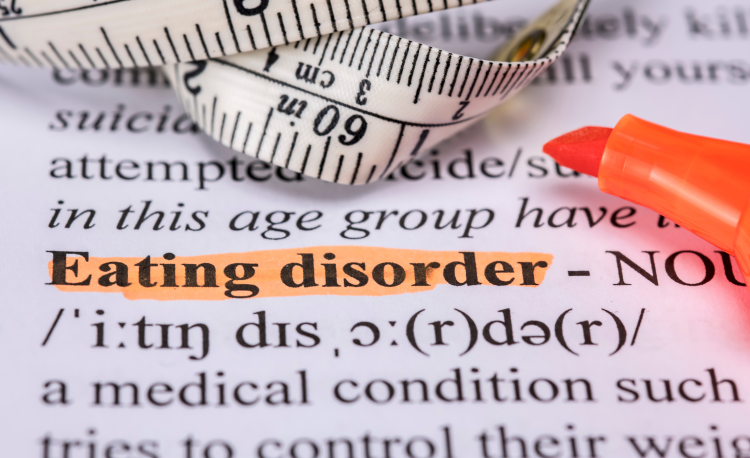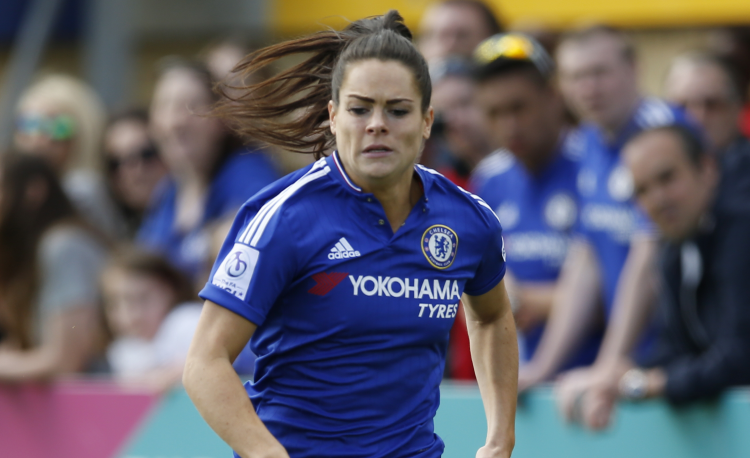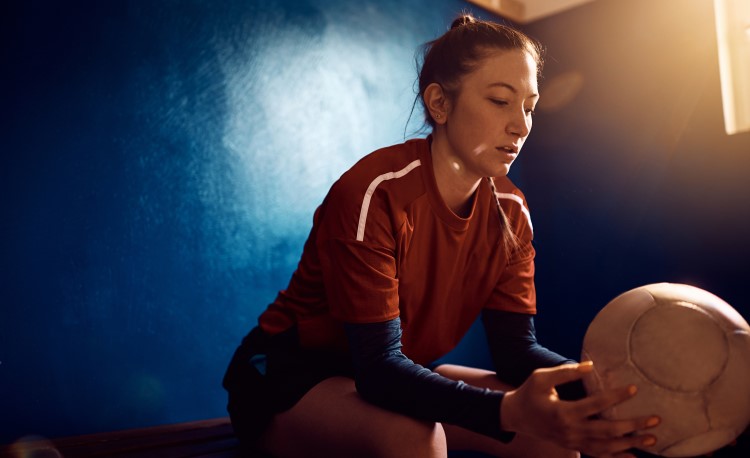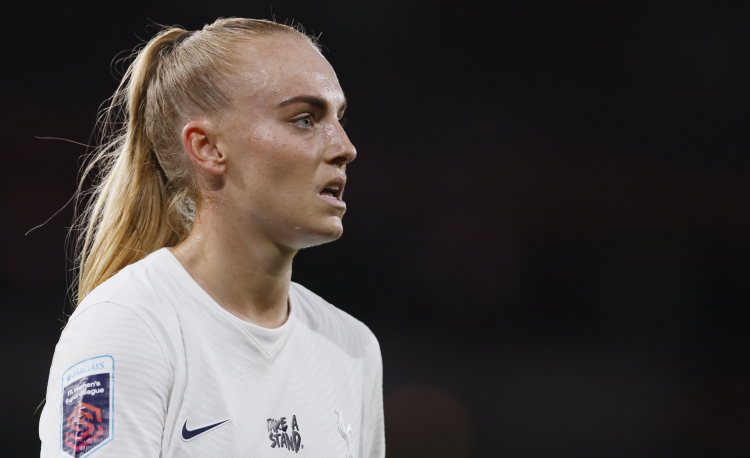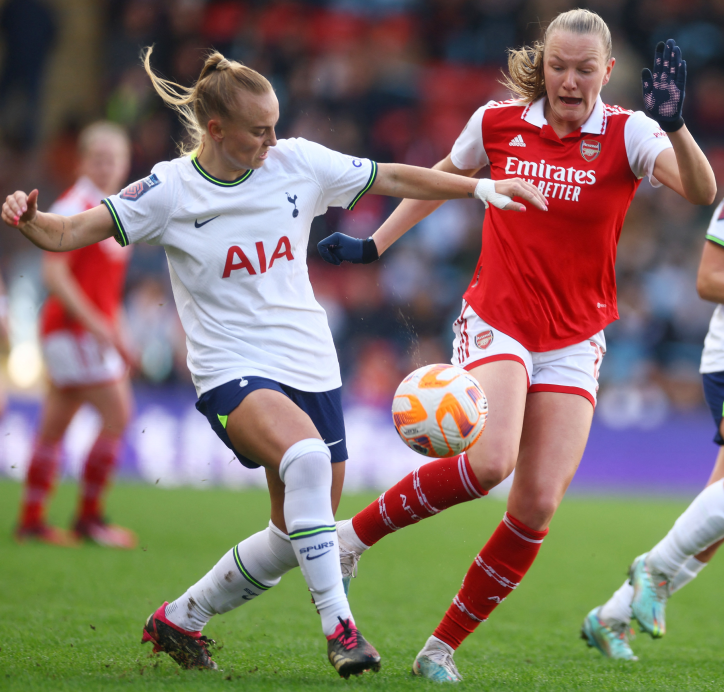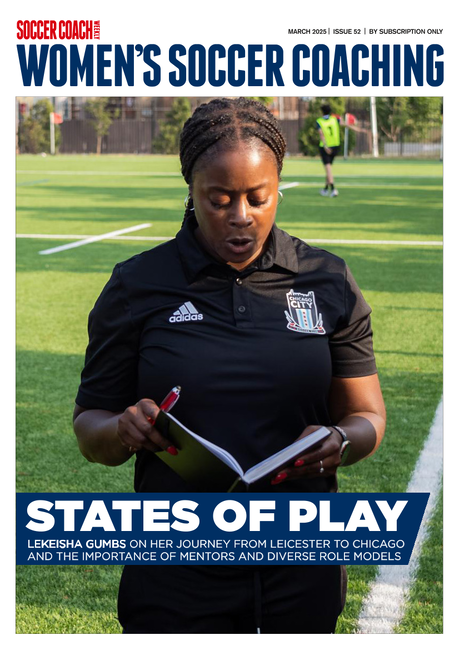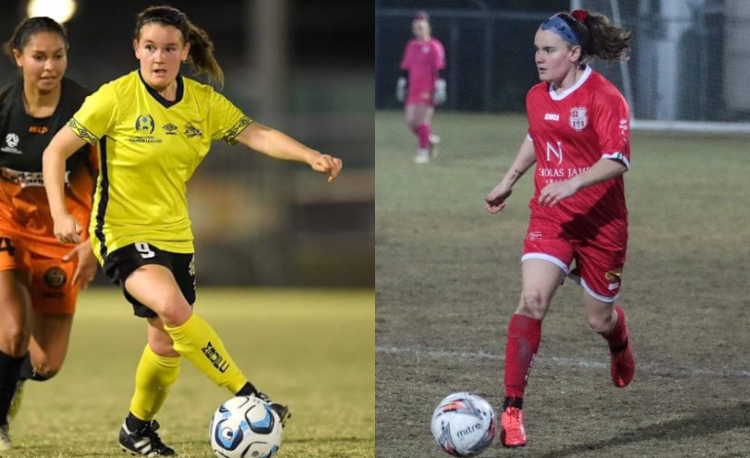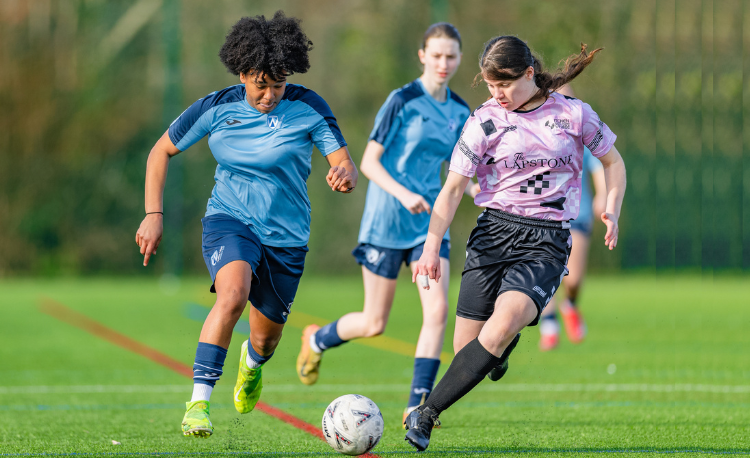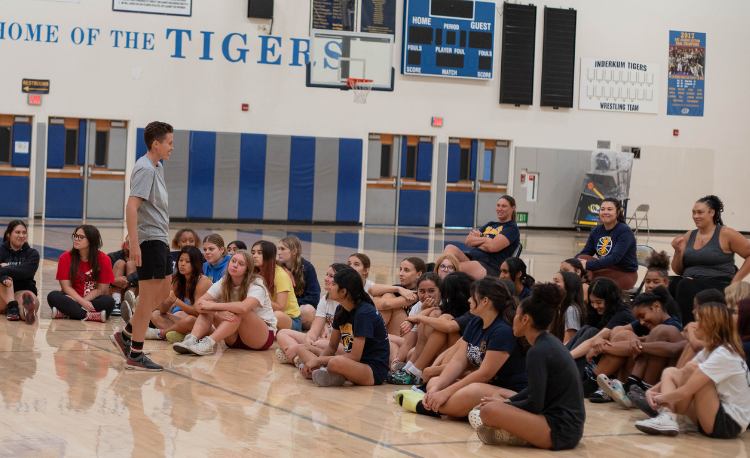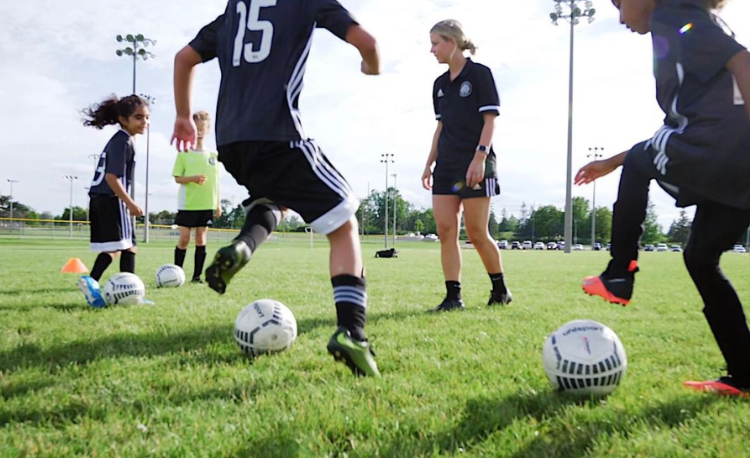You are viewing
1 of your 3 free articles
Molly Bartrip's journey
Aged 14, Molly Bartrip was in the grip of ‘Ana’ – a name she gave her anorexia. Now, the Tottenham star explains to Steph Fairbairn how coaches can take a look into her former world and learn to help others...
In July 2021, Molly Bartrip rejoined Tottenham Hotspur, the club where she had started her career as a nine-year-old.
Bartrip was 25 at the time of her homecoming, which she called a “full circle” moment. She had been away from the club for 16 years, most recently at Arsenal and Reading, and hit 100 WSL appearances in April this year.
However, “full circle” also referred to the journey she’d been on as a person in that time.
In February 2022, half a season into her second stint with her club, Bartrip detailed that journey in depth in a piece for The Players’ Tribune.
The piece, titled ‘Ana’, after the name Bartrip gave to her anorexia, is brave and brutally honest. She shared her experience of anorexia nervosa, which she was diagnosed with at the age of 14, and severe depression and anxiety, which she was diagnosed with a few years into playing professional soccer.
She says the timing for putting it out was “perfect”. Even so, she was naturally nervous.
“The detail… it’s deep,” Bartrip explains. “It comes from a real place. It wasn’t just about me, it was my family too.
“I remember when I first read it, I was like, ‘whoa, this is actually what happened’. It is almost a life story for me.”
“That was a bit weird, looking back and actually reading it, because I don’t really talk about it as much with my family anymore.
“Women care about what we look like. We have to fuel our bodies a little bit differently...”
“I’m the Molly I am today, not the Molly that I was over 10 years ago.”
Bartrip has only ever had one motivation for sharing such an honest and open piece.
“There’s only ever been one reason for me talking so openly about mental health and that has been to make sure other people don’t go through it,” she says.
Bartrip can’t speak anything but positively about the support she receives at Spurs. She doesn’t like stepping on scales and they don’t make her do it.
“They’re like, ‘Nope. You do what you need to do. If you don’t feel comfortable doing it, Molly, don’t do it’,” she says.
The nutritionist that joined the club towards the end of the 2021-22 season has been nothing but supportive.
“She knows my past, she knows exactly what I’m like. I still have weird habits and I think I always will, but she knows exactly what I can do and she supports me with it.”
She says the treatment she has at Tottenham is “a breath of fresh air,” but acknowledges that there is still a lot of work that needs to be done across the soccer industry as a whole to better the levels of research, understanding and support.
“Women especially, we care about what we look like,” she explains.
“We are not built like men. In that way, we have to fuel our bodies a little bit differently. I think sometimes it is something nobody wants to talk about.
“Maybe someone’s having a bad day so they don’t eat as much, and that’s okay on the odd day. Everyone has their own stresses in life and sometimes they don’t feel like eating.
“I’ve been in previous teams and environments where I’ve noticed people not eating correctly. I only noticed that because I know what I did when I was 14 or 15. I think it’s important for staff to notice things too.
“There is more research and more knowledge amongst the staff and also within the team. That’s for all mental health issues as well as for eating disorders.
“We put our bodies through a lot and you are seeing the amount of ACLs that are going on at the moment.
Is that to do with nutrition? Is that to do with your physical demands? Is it linked to the menstrual cycle? There’s so much that can contribute. I think even more so now, it’s important that we fuel and look after our bodies correctly.”
Coaches, in particular, are in a position to do more.
“I’ve always believed that coaches need to have a lot more knowledge on the broader subject of mental health,” says Bartrip.
“As coaches, you want 100% from your players. If there is a sense of individual care and understanding, you might just get an extra few percent.
“I look at football, surely we should be looking at 50% physical, 50% mental.
“If staff can see it and notice it, then I think it’s only gonna help the athletes, whatever sport industry you’re in.
“If staff members, not nutritionists specifically, have a broader knowledge of eating disorders, they can start noticing things. It’s not just physical habits sometimes, it’s behaviours and how you act. There’s so much more to it than just eating.
“People don’t want to be seen as ‘weak’. But if you create an atmosphere, an environment that is safe, I think so many more people will talk.
“I know that’s not an easy thing to do when you’ve got 25 competitive females. But if you can create that, I think you’ve got a winning team there.”
In an industry where, as Bartrip says, “your body is your tool of your trade”, conversations about them do need to happen.
“Everyone has different bodies. Especially in sport, everyone’s different. I can look at some players in my team that are smaller, but they can run forever. Then you’ve got players in my team that are stronger and nobody’s beating them in 1v1. You need both. You need different.
But it’s about how these conversations are had – the way they are approached, and the knowledge behind them.
“I think we can always think about what we say before we say things. I’ve learned the hard way with that many times. Not on the anorexia subject, but in everyday life too.
“You’ve got to be careful in how you say things, especially in the sporting industry where our bodies are our tools. Let’s remember, our minds are too.”
Returning to Bartrip’s Player’s Tribune piece, her take on it is: “If I can help one person, then I’ve done my job.”
Perhaps that should be a motto for all of us each day as we head into our football environments. Educate yourself, think about how you can create safe environments, show you care. These are things we can all do to make soccer safer, more accepting, and a better place to be.
Molly on the ‘little things’ that help more than we know
Related Files
“The right thing to do is just to care and to offer support: if you need anybody or you wanna talk, I am here.
“I’ve got somebody in my team that cares about people so much. She will ask if you’re okay if you’re down. Nobody realises, she doesn’t even realize, how far that goes.
“Having knowledge on the subject of mental health. I’m not asking every person in the team to Google “anorexia” to understand it. But even as players, we need to know more.
“I don’t think it’s easy to approach the topic of anorexia - it’s a very touchy subject when someone has it. Nobody wants to know they’re ill. When you are deep within anorexia, it’s very hard to see a way out. It’s very hard to see anything.
“The biggest thing with any mental health issue is support. The biggest thing is for people just to put an arm around your shoulder and go, ‘Look, if you need anything, I’m here’.
“It’s just the little things like that in mental health that go so far, but people don’t know that.”
Newsletter Sign Up
Newsletter Sign Up
Discover the simple way to become a more effective, more successful soccer coach
In a recent survey 89% of subscribers said Women's Soccer Coaching makes them more confident, 91% said Women's Soccer Coaching makes them a more effective coach and 93% said Women's Soccer Coaching makes them more inspired.
*includes 3 coaching manuals
Get Inspired
All the latest techniques and approaches
Women's Soccer Coaching offers proven and easy to use soccer drills, coaching sessions, practice plans, small-sided games, warm-ups, training tips and advice.
We've been at the cutting edge of soccer coaching since we launched Soccer Coach Weekly in 2007, creating resources for the grassroots youth coach, following best practice from around the world and insights from the professional game.
